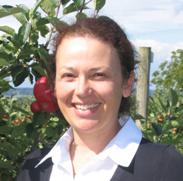Join the National Association of Plant Breeding and PBG Works for a webinar on soybean breeding by Thomas Carter of the USDA ARS in Raleigh, North Carolina . The webinar takes place on Wednesday, April 29, 2015 at 2PM Eastern Time (1PM Central, 12PM Mountain, 11AM Pacific Time). The webinar is free and advanced registration is required.
Register now at https://attendee.gotowebinar.com/register/8350278805777042177

This webinar is part of the 2015 National Association of Plant Breeders (NAPB) Webinar Series. Find all upcoming and recorded webinars at https://plant-breeding-genomics.extension.org/webinar-registration-and-archive/
About the Presenter
Dr. Carter’s research mission is to provide innovative genetic solutions that help improve the nations’ profitability in soy production. As a geneticist and breeder, Dr. Carter’s attack on the problem is to broaden genetic diversity in applied U.S. soybean breeding. In that regard, crop diversity is recognized as the foundation of breeding progress and at the same time perhaps the weakest link in U.S. soybean breeding. Of the ~120 soybean breeders in the USA, Dr. Carter is one of only two (and the sole researcher in the southern USA) to devote his/her career to this issue.
System Requirements
View detailed system requirements here
Java needs to be installed and working on your computer to join the webinar. If you have concerns, please test your Java at http://java.com/en/download/testjava.jsp prior to joining the webinar. If you are running Mac OS with Safari, please be sure to test your Java. If it isn’t working, please try Firefox (http://www.mozilla.com) or Chrome (http://www.google.com/chrome). The webinar program will require you to download software before connecting you to the webinar, so if you don’t have administrative rights on your computer, you may not be able to do this, although you can listen in by phone. If you’d like to test your connection to gotowebinar in advance, go here




